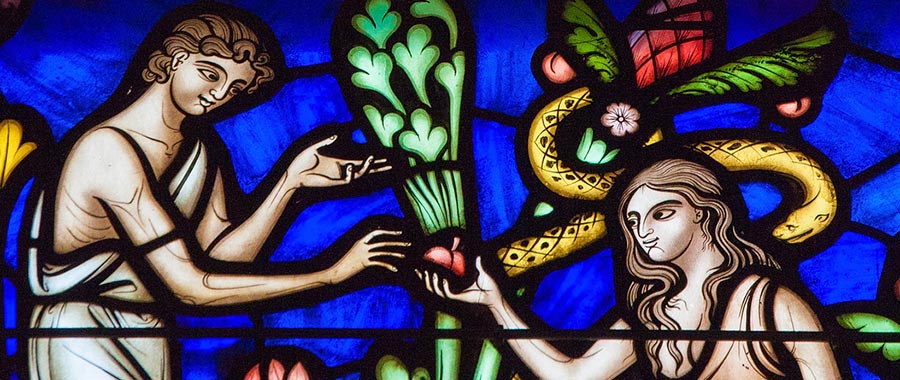The Baha’i teachings present a distinctive perspective on the concepts of original sin and the sins of the father, diverging significantly from traditional interpretations prevalent within various religious frameworks. This divergence chiefly arises from Baha’i beliefs in the inherent nobility of human nature and the potential for individual transformation. In this examination, crucial aspects of these topics will be unraveled, including foundational principles, interpretations, implications for moral responsibility, and pathways to personal growth.
Understanding Original Sin in Baha’i Context
The Baha’i Faith posits that individuals are born with an innate purity, unfettered by the burdens of original sin. This belief stands in stark contrast to doctrines espoused by some Christian denominations, which state that all humans inherit a sinful nature due to the transgression by Adam and Eve in the Garden of Eden. Instead, the Baha’i writings advance a doctrine of the essential oneness of humanity, suggesting that every person arrives into existence with the potential for greatness and virtue.
In understanding original sin through a Baha’i lens, one must consider the notion of the human soul. The soul is viewed as a reflection of God’s attributes, possessing the capacity for extraordinary development and elevation. This focus shifts the debate from one of inherited guilt to the exploration of personal accountability and the transformative journeys each individual is encouraged to undertake. Thus, Baha’is emphasize that human beings are not doomed to sin but possess the intrinsic ability to embrace virtue and to rise above their circumstances.
The Sins of the Father
Delving into the concept of the sins of the father, Baha’i literature elucidates that while the actions of one generation can affect subsequent generations, individuals remain ultimately responsible for their own lives. The traditional notion of familial responsibility, which connotes a direct transmission of sin or guilt across generations, is reframed within Baha’i teachings to highlight the importance of personal choice.
In this framework, the “sins of the father” metaphorically signify the learned behaviors, prejudices, and patterns that can permeate familial bonds. However, while one may inherit certain dispositions or face societal challenges stemming from their lineage, it is imperative to recognize that one’s character is not predestined. Each person tiene to exercise their agency in navigating these inherited traits, transforming negative patterns into positive actions.
Implications for Moral Responsibility
The Baha’i approach implicates a significant shift in the understanding of moral responsibility. As individuals are not encumbered by original sin, the focus shifts squarely onto the actions and choices of each person. This perspective fosters a sense of empowerment among believers, as they are called to make ethical decisions based upon their conscience and their aspirations for personal and collective improvement.
Moreover, the Baha’i teachings advocate for a communal responsibility, urging individuals to contribute positively to society. While one’s upbringing may shape various aspects of their adult life, there exists an opportunity for transformation through spiritual education and moral growth. Thus, the responsibility extends beyond the individual, inviting families and communities to actively support one another in nurturing virtues and overcoming limitations.
The Pathways to Personal Transformation
Within the context of overcoming original sin and the inherited sins of the father, Baha’i teachings provide numerous avenues for personal and societal transformation. Central to this evolution is the practice of spiritual education, which empowers individuals to recognize their divine potential and inherent worth. This education emphasizes not only intellectual understanding but embodies a holistic approach to the cultivation of virtues.
Prayer and meditation play essential roles in this transformative journey, allowing individuals to reflect deeply, seek guidance, and attain clarity of purpose. Through earnest supplication, Baha’is believe that one can draw closer to God, aligning their actions with divine principles. The frequent recitation of prayers and engagement with Baha’i scripture fosters an environment of self-examination and growth, enabling personal accountability and ethical living.
Furthermore, community engagement is a quintessential aspect of Baha’i life, providing individuals with the opportunity to collaborate with others on projects that promote social justice, equality, and the alleviation of suffering. By partaking in collective initiatives, members reaffirm their commitment to positively shaping their world. This interconnectedness not only aids in overcoming inherited burdens but also cultivates a collective moral fabric that can withstand the challenges of modernity.
Final Reflections
In conclusion, Baha’i teachings on original sin and the sins of the father present a nuanced understanding that informs both individual spirituality and societal ethics. By emphasizing the potential for transformation and the inherent virtue in every person, the Baha’i Faith articulates a powerful message of hope and responsibility. In this framework, believers are not shackled by the past but are equipped to forge a path leading toward personal excellence and collective progress. The emphasis on education, prayer, and community underscores the tenets of personal accountability and ethical living, propelling humanity toward a future defined by unity and shared purpose. Through these teachings, Baha’is are inspired to transcend inherited limitations, embracing a life characterized by love, compassion, and unwavering commitment to truth.
